Nursing License Defense Attorney in Austin and Houston, TX
Texas Nursing License Defense Attorney

Nurses dedicate their lives to helping others, so it can be especially painful for them when they face allegations or charges that might prevent them from being able to perform their jobs. At the Leichter Law Firm, we understand what it takes to beat the charges you are facing and allow you to continue working in the profession you love. To discuss your needs with a dedicated Texas nursing license defense attorney, please contact us today by calling 512-495-9995.
Nurse License Defense
A nursing license defense lawyer at the Leichter Law Firm can help you understand the following aspects of nursing license defense.
- The Disciplinary Process
- Chemical Dependency
- Criminal Conduct
- Standard of Care
- Texas Peer Assistance Program for Nurses (TPAPN)
- Peer Review Actions
How Do I Protect My Nursing License?
You worked hard to obtain your nursing license. Unfortunately, one small mistake at work or an unprofessional occurrence in your personal life can lead to a license suspension or revocation. While you cannot eliminate this risk, there are ways to mitigate the risk. Protecting your nursing career requires a proactive approach and quick action once you know of any allegations against you.
You’ll want to talk to a nursing license defense attorney when you suspect you’re under investigation. In the meantime, here are a few other tips to help protect your nursing license.
- Focus on communication. Clearly communicate the information you have to others. Breakdowns in communications between nurses, physicians, etc, lead to medical errors and poor patient outcomes.
- Follow facility protocol. No matter who else takes the shortcut, you shouldn’t. If you believe you’re being asked to do something unethical, refuse. It’s up to you to align your actions with the law, your profession’s standards, and your facility’s guidelines.
- Don’t rely on your coworkers. It’s always safer to assume that if something is your responsibility, you must ensure it gets done. Relying on others could end up putting your professional license at risk.
- Keep your social media profiles and personal life private. Anything you post online could potentially be used against you in an investigation, so it’s important to keep your personal life to yourself.
- Always assume someone is watching. Nursing is heavily regulated, and state boards are quick to suspend nursing licenses. It’s your responsibility to ensure your actions are consistent with standards.
What Are the Grounds for Discipline for Nurses?
The most commonly pursued grounds for discipline include the following:
- Standard of care violations
- Sexual and personal boundary violations
- Fraud, theft, and deception
- Chemical dependency and substance abuse of drugs or alcohol
- Lying and falsification
- Failure to comply with continuing education (CE) CE requirements
- Failure to pay licensure fees on time
- The commission of a criminal offense
- Malpractice suits and judgments
- Other conduct likely to deceive or defraud the public
What Types of Penalties Are There for Nurses?
- Monitoring
- Administrative Penalty (Fine)
- Directive to Fulfill Neglected Obligation (Specific Performance)
- Public Reprimand
- License Restriction or Impositions on Practice
- TPAPN Directive
- Probation of a License Suspension
- Active Suspension as a Requirement of Probation
- Revocation
Furthermore, as a requirement of the probationary sanctions or terms, the Board can order a nurse to undergo counseling, additional training and education, or restrict their ability to practice as deemed appropriate.
Texas Board of Nursing and Nursing License Defense
The Texas Board of Nursing (formerly the Board of Nurse Examiners for the State of Texas) regulates nursing practice in the State of Texas under the Nursing Practice Act, the Texas Administrative Code, and other guiding statutes such as the Health & Safety Code and Chapter 53 of the Texas Occupations Code.
The Board regulates registered nurse (RN), licensed vocational nurse (LVN), and advanced practice nurse (APN), nurse practitioner (NP), and other designations, such as clinical nurse specialists. They also regulate and grant prescriptive authority to nurses who are credentialed to apply for DEA / DPS prescriptive authority.
What Does the Texas Board of Nursing Do?
The Texas Nursing Board protects the public and grants, denies, and disciplines nursing licenses/nurse registrations based on what they perceive as actual or potential violations of the Nursing Practice Act. The Board has 13 members, 9 of whom are nurses and 4 are public members.
The Board appoints an Executive Director who is responsible for the daily affairs of running the agency, which include such areas as the following.
- Processing license applications
- Handling open records requests
- Issuing internal rules and procedures
- Developing policies and procedures for handling a variety of matters
- Running a staff that consists of over one-hundred employees
Contrary to popular belief, a nurse undergoing an investigation of his or her license due to alleged practice errors or behavioral transgressions encounters Board Staff and not the Board. The investigators, enforcement team, and Texas Board of Nursing attorneys who advise the Board and generate all of the offers of Agreed Orders and policies regarding the same are Board Staff.
In fact, a nurse undergoing disciplinary action or investigation will rarely encounter an actual Board member. Even the Informal Conferences are run and determined by the Staff of the Board. Board members will only be encountered if a nursing license applicant is invited to attend a meeting of the Eligibility & Disciplinary Committee or if the nurse has gone through the contested case hearing process at the State Office of Administrative Hearings and the matter goes to the Full Board for consideration. Even in these cases, the nurse is rarely allowed to appear, even though it is well within their rights.
Within the Board’s Staff, the disciplinary guidelines and determinations with respect to nursing license discipline are set forward and policed by the Executive Director, the Enforcement Division, and the Division of Nursing Practice. Also included are attorneys and lawyers who are employed as Board Staff, but represent the Texas Board of Nursing.
Matters of legal representation that go beyond mere discipline and that involve appeals, rulemaking, declaratory judgments, and administrative writs and lawsuits in District Court are sent to the Office of the Attorney General. These cases are not tried by the attorneys employed by the Texas Board of Nursing as staff lawyers.
This is because they generally involve more complex legal issues beyond the expertise and competency level of the Texas Board of Nursing’s Office of the General Counsel. Moreover, due to internal work demands and inherent conflicts of interest, these cases are outsourced to the Attorney General.
Nursing License Cases Investigated by Staff of the Board
In generic terms, there are two types of cases investigated by the Staff of the Board:
- Practice Related Cases
- Behavioral Cases
- Chemical Dependency
- Criminal History Related
- Allegations of Mental Health Issues / Psychiatric Disorders
- Pain Management / Required Narcotic Consumption
The Texas Board of Nursing and Board Staff pride themselves on being a tough and vigorous agency taking the public’s protection charge to heart. Unfortunately, to accomplish this goal, they have developed streamlined policies, ideals, and procedures that are often questionable or illegal and do not take into account the individualized situation of the Nurse before them.
This results in the unwarranted discipline of hundreds of nurses who appear before Board Staff or go through the disciplinary process without competent legal counsel each year in Texas. Often, the licensure sanctions are severe, including license probations, suspensions, surrenders, and revocations.
What makes it worse is that the investigators frequently lure nurses into a false sense of security, telling them throughout the process that if they just cooperate, everything will be fine. This is one of many reasons why working with a nursing license defense lawyer is so important for your case. We can ensure that your rights are protected and your voice is heard during the process.
Complaints, Investigations, Hearings, and the Disciplinary Process for Nurses
Once the Texas Nursing Board receives a complaint about a nurse, they provide due process by informing the nurse of the allegations and the impending investigation. The nurse then has a chance to respond to the allegations and show that they have complied with the Nurse Practice Act.
During the investigation process, the Board obtains all relevant evidence and contacts witnesses. Most investigations occur via email or over the phone, but the Board may occasionally conduct an on-site investigation. Once the nursing board investigator obtains the evidence, they will review it and determine whether or not a violation has occurred.
If no violation occurred, the case is closed. Depending on how the case is closed, the complaint and its evidence may be expunged from the nurse’s file immediately or after being retained for a certain period of time. Closed cases that are retained can be reopened if the Board receives more evidence, information, or complaints before the expungement.
If the Board finds that a violation has occurred, they will send an Order of the Board to the nurse that includes penalties and requirements for the nurse’s license retention. Board Orders are a matter of public record and could remain in the nurse’s record permanently.
Generally, investigations can take anywhere from 5 to 12 months to complete. The Board will regularly update the complainant and the nurse on the investigation status. They will also notify complainants of the final outcome of the investigation.
What Criminal Matters Must Nurses Report to the Nursing Board?
Generally, nurses must report everything aside from minor traffic infractions. If a nurse wants to apply for a license or renew a license, they must report all criminal convictions on the application. Simply having a criminal history does not disqualify someone from obtaining or renewing a nursing license.
If you are convicted of a crime after you obtain your nursing license, you can either wait for your renewal period to roll around, or you can self-report the incident. It is possible for the Board to look more favorably on self-reporting, but not guaranteed.
If a nurse does not self-report, a third party may report their crime to the Board. This could cast a more unfavorable light on the nurse when compared to self-reporting, but not always. The Board will review each case individually before they make a decision.
Nurses who are unsure of whether or not self-reporting is a good idea should speak with our qualified nursing license defense attorneys. We can examine the facts of your situation and advise you on the best steps to take to protect your nursing career.
What Is the Texas Peer Assistance Program for Nurses?
The Texas Peer Assistance Program for Nurses (TPAPN) is a program funded by nursing licensure fees through the Texas Nursing Board. It exists to protect patients by providing support, monitoring, accountability, and advocacy to Texas nurses who have substance abuse or mental health problems.
If a nurse has an identified substance abuse or mental health episode, they can be referred to the TPAPN. The TPAPN will conduct a drug test and assess their substance abuse and mental health. This assessment will include a diagnosis, treatment recommendations, support, and recovery recommendations. It will also include a determination of the nurse’s fitness to practice nursing, long with practice monitoring.
To participate in the TPAPN, the nurse must meet certain requirements, including drug testing, treatment, refraining from nursing practice, supervision, restrictions, and recovery support. They will have peer support from a fellow nurse volunteer, and they must maintain communications with the TPAPN.
If the nurse complies with the TPAPN requirements, they can likely continue to practice in the nursing profession. If they do not comply, they will likely be referred to the Texas Nursing Board.
What Is the Nurse Practice Act in Texas?
The Texas Nursing Practice Act (NPA) outlines the legal scope of nursing practice for licensed vocational nurses (LVNs), registered nurses (RNs), and other nursing professionals. Each state has its own NPA that covers the following aspects of nursing practice, according to the Texas Board of Nursing.
- Assessment, observation, evaluation, intervention, rehabilitation, and more for someone who is sick, injured, or undergoing a change in their normal health function
- Maintaining health and preventing illnesses
- Supervising or teaching nurses
- Administering medication or treatment as ordered by physicians
- Administering, supervising, and evaluating nursing policies, practices, and procedures
- Developing a nursing care plan
- Requesting, signing for, receiving, and distributing prescription medications
Do I Need a Nursing License Defense Attorney?
You are not required to hire an attorney for your case, but we strongly recommend doing so. The Nursing Board will have a team of lawyers on their side, so attempting to face charges or allegations on your own is rarely a good idea. In fact, you would be at a great disadvantage if you faced the Board without legal representation. An attorney can also help you gain access to documents you might otherwise not have access to.
How Can an Attorney Help Me?
An experienced nursing license lawyer is a great resource for any nursing professional who is facing disciplinary action. Some of the benefits an attorney can offer you include the following.
- Gather more information about the complaint
- Communicate with the Nursing Board
- Craft a strong defense strategy
- Represent your interests at all hearings, including in administrative courts or in front of an administrative law judge
- Defend against criminal charges against you
- Gather evidence and data to support your defense strategy
- Negotiate a lesser punishment or reduced charges
- Portraying your character in a positive light
Contact a Texas Nursing License Lawyer at Leichter Law Today
If you are in danger of losing your nursing license and would like to learn more about how the Texas nursing license defense attorneys of the Leichter Law Firm may be able to help you save your career and your reputation, please contact us today by calling 512-495-9995. An experienced lawyer with our firm will evaluate the facts of your case and advise you on how to proceed. We strongly recommend that you seek legal counsel to have the best possible chance of successfully defending your professional license.
Get in Touch
Nursing License Defense FAQs
- Behavioral Cases
- Chemical Dependency
- Criminal Conduct
- Nursing Malpractice Investigations
- Peer Review Actions
- Standard of Care
- TPAPN
- The Disciplinary Process
Nursing License Representation Locations
Office Locations
1602 E 7th St
Austin, TX 78702
Phone: (512) 495-9995
Get Directions
3700 N Main St
Houston, TX 77009
Phone: (713) 714-2446
Get Directions
214 N 16th St #128
McAllen, TX 78501
Phone: (956) 205-0884
Get Directions


